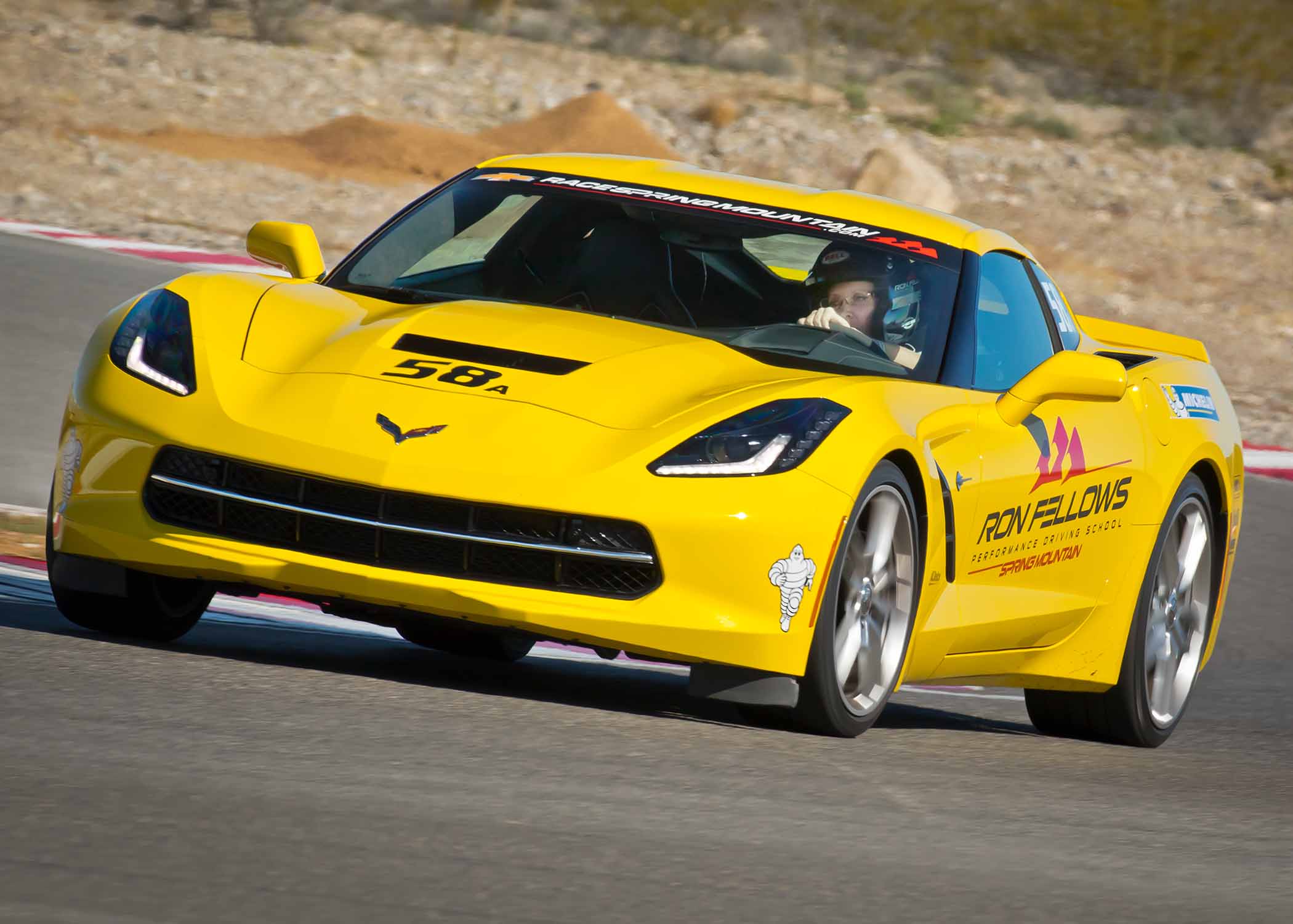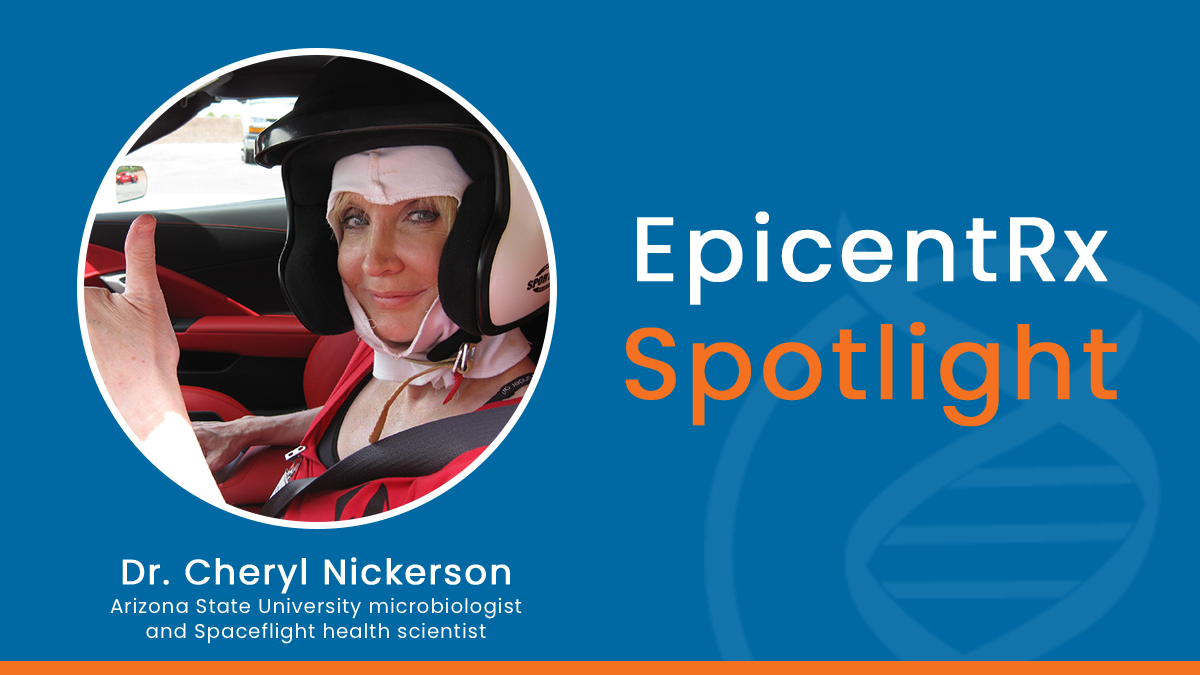What has the faster motor, a NASCAR race car, or a flagellated bacterium? According to Arizona State University microbiologist, Dr. Cheryl Nickerson, aka “the bacteria whisperer” (although TBH we’ve never heard her whisper) and space health scientist the answer is, hands down, the bacterium, whose rotor may reach up to 100,000 rpms. Compare this to a NASCAR engine which tops out at 10,000 rpms.
Whatever mental image you have of a shy, pasty-faced, taciturn, dry-as-dust researcher who only talks about science, when he or she talks at all, and rarely ventures outside the confines of the lab, immediately disabuse yourself of it because this does not square with who Dr. Nickerson is at all. She is the diametric opposite of that image. For fun Dr. Nickerson, hair on fire, pulls Gs but not zzzs either in her next gen 600+ horsepower Chevrolet Corvette C8 on the racetrack or as a ride along for double digit full throttle, white knuckle ‘hot laps’ with a professional race car driver.
Doubt us? Check out this fascinating day in the life interview, which explores how Dr. Nickerson intertwines her need for speed on Earth and in Outer Space on rockets. https://azpbs.org/catalyst/2019/06/catalyst-racing-against-infectious-diseases. There, with the help of NASA astronauts, she runs experiments on microbial mechanotransduction, that is how bacteria respond to changes in physical forces such as gravity and fluid shear stress. This is critically important not only for missions to Space, because Dr. Nickerson and her team have discovered that spaceflight makes some bacteria more virulent, more prone to biofilm formation, and more stress-resistant, but also to better understand how to treat hard-to-eradicate bacteria here on Earth, including those that are multi-drug resistant. A case in point is the disease known as cystic fibrosis (CF) where the mechanical properties of mucus lead to chronic bacterial infection, and an excessive inflammatory response, which is difficult to manage.
This brings us to how our interests at EpicentRx intersect with those of Dr. Nickerson. We plan to have her ASU team evaluate the anti-infective and mucolytic (mucus thinning) properties of our small molecule, RRx-001, on biofilm formation both on Earth and in Space on the International Space Station (ISS). How cool is that!
To keep up with Dr. Nickerson and her team, we know that we need to act with immediacy. They move fast.
To be fair, we at EpicentRx are also fast especially on weekdays after midnight. Fast asleep, that is.


